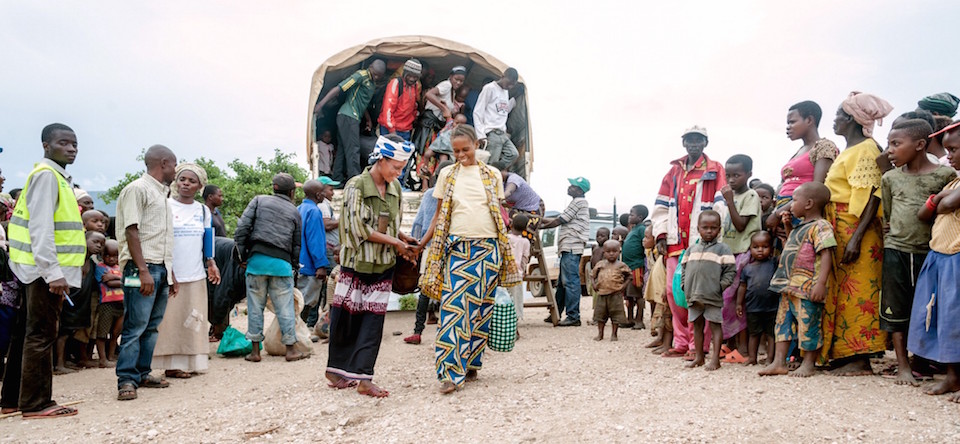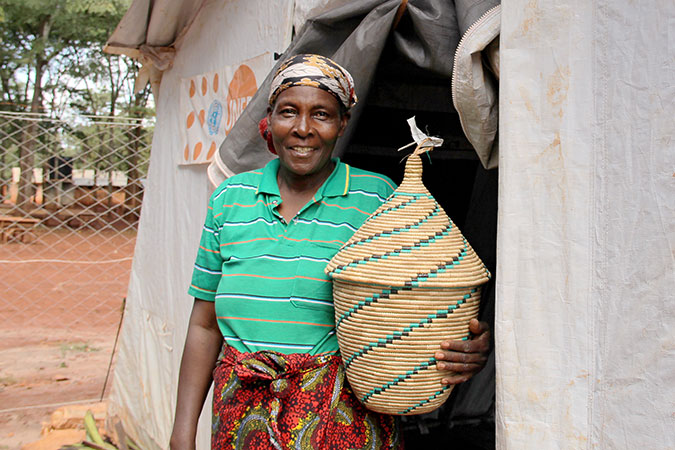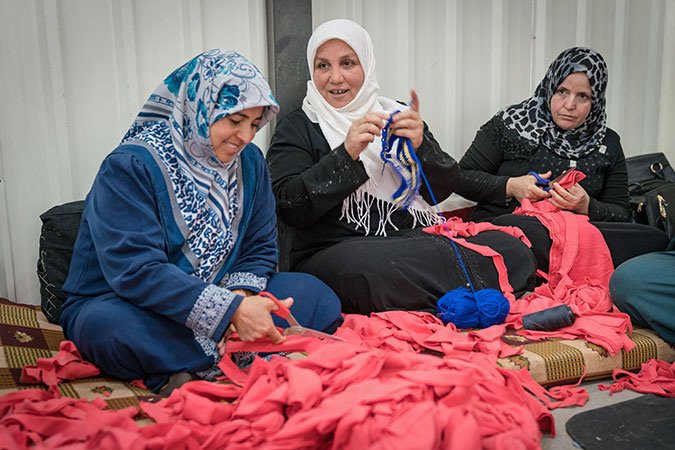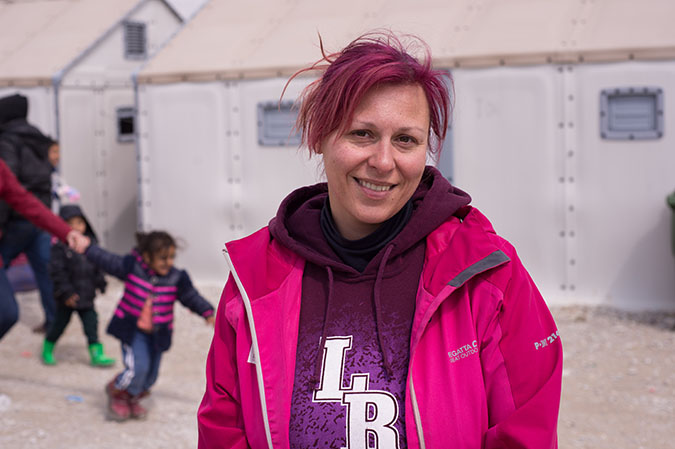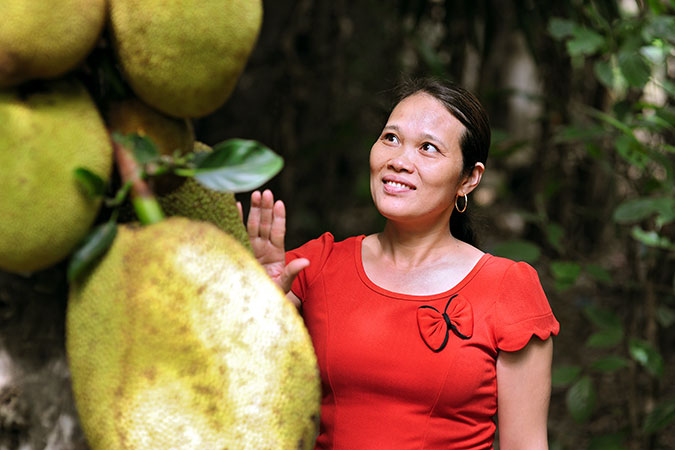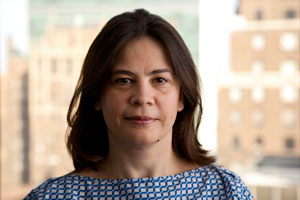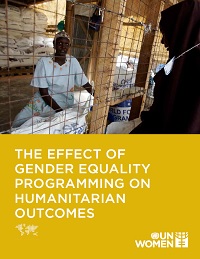World Humanitarian Day
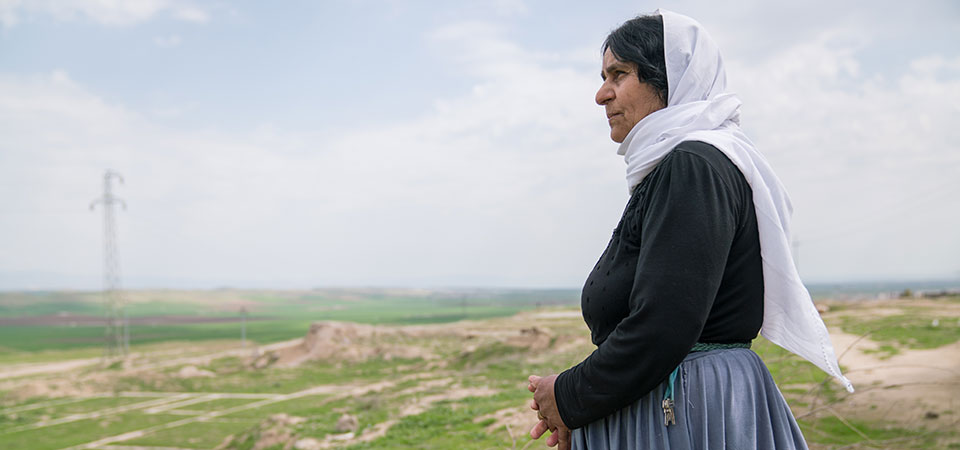
Photo essay | Stories of women in crisis | Videos |Publication| Join the conversation
When crisis occurs, people’s lives change in an instant. It may be a flood that sweeps away homes and livelihoods in a flash; or a conflict that tears apart families forever, targeting those who had no role in its making.
UN Women statement for World Humanitarian Day
On World Humanitarian Day, UN Women fully supports the UN's #NotATarget campaign, and calls on everyone to "come together to change the status quo—for women and girls, and for all civilians caught up in crises".Read more»
On this year's World Humanitarian Day, 19 August, the United Nations and partners are advocating for the protection of civilians, humanitarian workers, and all those affected by conflict.
Conflicts impact the lives of women, girls, men and boys differently. Women and girls typically take on a higher burden of care-related tasks, such as providing food and water and caring for the sick. As society’s protection structures and support networks break down, and people flee impacted areas, women face heightened risks.
Adolescent girls in conflict zones are 90 per cent more likely to be out of school when compared to girls in other, conflict-free, countries. Girls are often kept out of school due to concerns about safety.
Sixty percent of preventable maternal mortality deaths take place in settings of conflict, displacement and natural disasters. Every day, 507 women and adolescent girls die from pregnancy and childbirth complications in emergency settings.
Photo essay
Women in crisis : vulnerable to risk, vital to recovery
Armed conflicts. Earthquakes and storms. Deadly disease outbreaks. Such crises destroy human lives and communities with striking regularity. Each year, they hit dozens of countries in every region of the world, sometimes with no warning at all. Humanitarian assistance can be far more powerful when it reaches and empowers women. These are women’s stories of hardship and courage in the face of crisis.
Stories of women in crisis
In Tanzania, refugee women find safety and embrace new lives
In three Women’s Centres supported by UN Women in Tanzania, women refugees find safe spaces to network, learn new skills and recover from the trauma of war and sexual violence. Many have picked up new trades and advocate for their own rights. Some have found new family and new lives.
From where I stand: “With every thread I wove…I was weaving away my sorrows”
At 47, Emm Ali has experienced immense loss. A Syrian refugee living in the Za’atari refugee camp in Jordan since 2013, she found a sense of purpose as she joined UN Women’s cash-for-work programme and started weaving carpets.
From where I stand: Sonja Dimitrijoska
Sonja Dimitrijoska, 39, from the former Yugoslav Republic of Macedonia, is a humanitarian aid worker with the NGO La Strada, a partner organization of UN Women and Oxfam in their joint work to provide support to women and girl refugees in transit centres in the Western Balkans.
In Viet Nam, women are leading disaster prevention and response
In Viet Nam, one of the most disaster-prone countries in the world, women’s role in disaster risk reduction, preparedness and response was not recognized, until recently. Local women are now leading their communities in preparing for floods in ways that reduce negative impacts.
Expert's take: Bringing light to the darkest places
Blerta Aliko, who formerly led UN Women’s Humanitarian unit and currently serves as Deputy Regional Director for UN Women in the Arab States region, reflects on the current unending flurry of humanitarian disasters around the world. She underlines that it is in the face of adversity that we see resilience, determination and the power of people’s will to live in dignity and respect, which is what gives humanitarians the strength they need to bring light to the darkest places.
Videos
Video: Colombian women play central role in peace process
After the Wayuu community was massacred by Colombian paramilitaries, Debora Barros Fince, went on to create an organization which works with victims of sexual and domestic violence and aims to include Colombian women in peacebuilding and national reconciliation.
Beyond Tanganyika
Finess is a refugee in the Lusenda Camp in the Democratic Republic of the Congo. Political violence in her hometown in Burundi forced Finess to flee across Lake Tanganyika in the middle of the night, leaving behind two daughters. With the help of UN Women’s Safe Spaces, Finess learns new skills and begins to save money for her return journey to Burundi.
Publication
The Effect of Gender Equality Programming on Humanitarian Outcomes
Based on evidence gathered directly from crisis-affected populations, “The Effect of Gender Equality Programming on Humanitarian Outcomes” study presents a compelling case that gender equality programming makes a positive contribution to improving humanitarian outcomes.
Join the Conversation
Join the conversation about protecting those affected by conflict using #NotATarget on social media. A social media package along with images in English, Spanish and French is available here.
Follow us:
@un_women, @onumujeres, @onufemmes, @phumzileunwomen, @sayno_unite on Twitter
UN Women, ONU Mujeres, ONU Femmes, Say NO - UNiTE on Facebook
UN Women on Google+
UN Women on Instagram
UN Women on LinkedIn
UN Women on Pinterest
See our coverage of women in humanitarian action 2016

